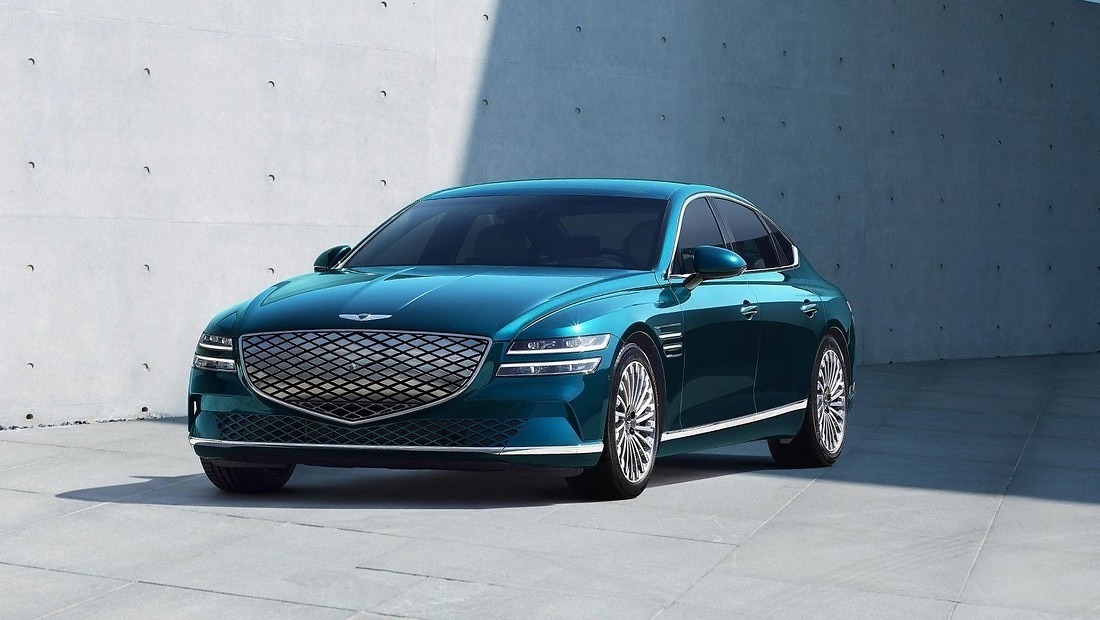For many drivers who aspire to move to eco-friendly battery electric vehicles this year, one of the key variables is the availability of government subsidies. Amounts vary depending on the market price of the car.
When it comes to high-end demand, however, subsidies apparently made no difference as luxury BEVs aggressively expanded their presence, especially against global market champion Tesla, industry data showed this week.
According to data compiled by the Carisyou Data Lab on vehicle registration statistics from the Ministry of Land, Infrastructure and Transport, the number of imported EVs sold from January to April this year came to 4,351, up 2 percent from the same period last year.
Of the total, Tesla still accounted for 3,308 vehicles. But its market share shrunk 18.8 percent on-year, while that of other global competitors soared 450 percent during the same period.
Next to Tesla were Porsche, which sold 493 electric Taycan 4Ss, and Mercedes-Benz, which sold 242 EQC electric SUVs. French carmaker Peugeot sold 94 e-2008 SUVs, while German rivals Audi and BMW respectively sold 70 e-tron 55 SUVs and 60 i3s.
Market competition is anticipated to intensify further in the latter half of the year, as premium German carmakers are set to roll out luxury EV models apparently targeting young, rich drivers seeking advanced performance and a long driving range.
Mercedes-Benz’s large electric EQS sedan, BMW’s iX electric SUV and Audi’s e-tron GT electric sports car are slated to be released within the year.
All of those models are excluded from government subsidies as they retail for more than 90 million won ($80,185).
Under revised rules starting this year, vehicles priced below 60 million won are eligible for the maximum amount, while those priced between 60 million won and 90 million won qualify for half the ceiling.
The maximum subsidy from the central government is 8 million won for each buyer, while provincial governments may offer up to 11 million won. The final amount paid to the buyer reflects provincial and central government subsidies combined.
In the case of Audi’s RS e-tron GT, the line’s premium racing edition, the retail price in the European market came to 138,200 euros (189.68 million won). The domestic retail price of Tesla’s premium electric sedan Model S is currently set at 199.9 million won.
While German carmakers vied for market share initiative, South Korea’s top domestic automaker, Hyundai Motor, geared up to sell the G80e, the electric version of the G80 sedan, under premium independent brand Genesis, starting in July.
The new model, which runs a maximum of 427 kilometers on a single charge and takes 4.9 seconds to reach 100 kilometers per hour from zero, is expected to carry a retail price of around 900 million won.
“Hyundai Motor will face increased market competition in the high-end BEV sector, but will still keep an upper hand, thanks to steady demands for official vehicles and company cars,” said an official with one of the leading imported car brands here.
Meanwhile, in the budget price group, anxiety has been escalating as the government’s subsidy balance shows signs of earlier-than-expected exhaustion.
According to data compiled by the Korea Automobile Manufacturers Association, applications for all-electric car subsidies received as of end-April came to 81.5 percent of the yearly budget.
The lack of funds in the budget especially weighed down on Hyundai Motor, which has had to suspend manufacturing several times this year due to a prolonged shortage of semiconductors.
The Korean automaker recently suggested that purchasers of the Ioniq 5, the company’s new all-electric vehicle, compromise on some of the options to speed up delivery.
The move was seen as an effort by the carmaker to prevent impatient buyers from dropping their orders and switching to already-available EV models to secure subsidies in time.
Since launching the Ioniq 5 on Feb. 25, Hyundai Motor has received about 43,000 preorders, but only about 200 of the vehicles had been delivered as of the second week of May, industry data showed.
By Bae Hyun-jung (
tellme@heraldcorp.com)







![[Weekender] Korea's traditional sauce culture gains global recognition](http://res.heraldm.com/phpwas/restmb_idxmake.php?idx=644&simg=/content/image/2024/11/21/20241121050153_0.jpg)
